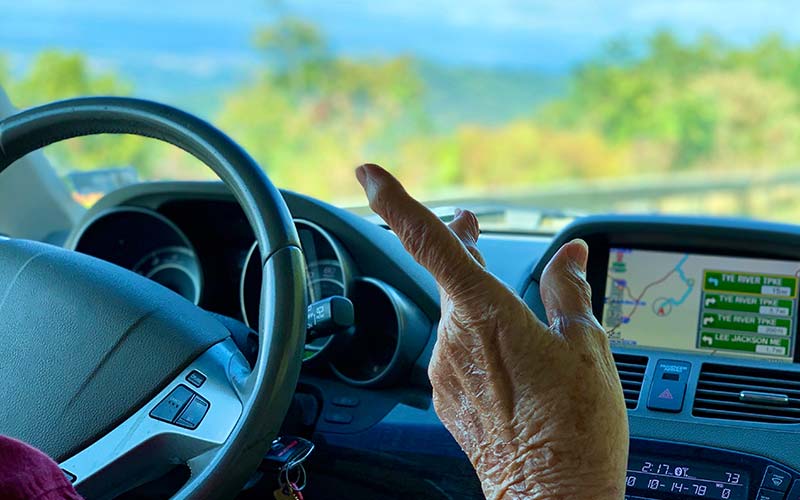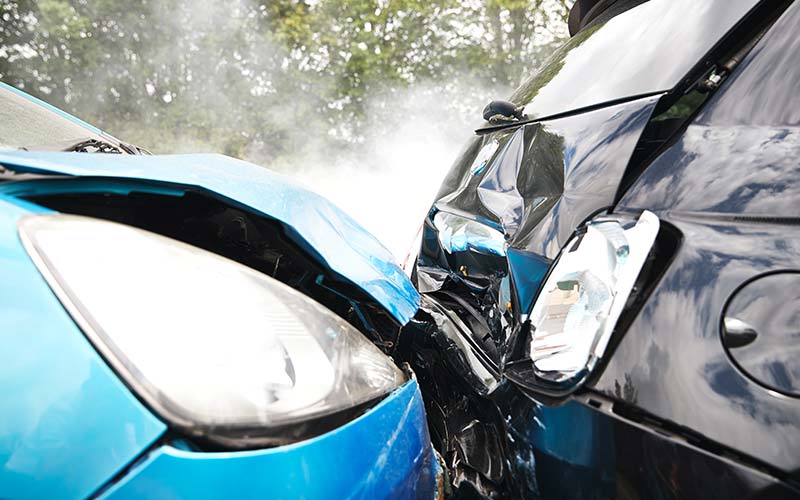It probably goes without saying, but let’s start off right away by saying this could be anyone, not just Dad who shows signs he shouldn’t drive anymore. Many of us remember what it was like to be sixteen, or around that age, and getting their first driver’s license. The freedom that came with it opened up a whole new world to us, as long as we could keep our insurance costs down and not do anything foolish that would get us grounded.
Over the years, we take that freedom for granted. We get so used to driving where we need to that we forget a time when we were too young and unable to drive. The thought that one day our body or mind, or a combination of both, would take that away from us.
How many of us anticipated the day when driving would no longer be our ticket to freedom, but downright dangerous. Identifying the signs of a loved one who might not have the capacity to drive anymore is important to keep them, and others, safe.
Here are some things to look out for.

There are unexplained marks, dings or scratches on the vehicle
This might be obvious, or it might be something you need to actively look into. You’re looking for damage to their vehicle that you hadn’t noticed before. While it might be an obvious indicator, it might have been a while since you’ve had a look at their vehicle, especially if they keep it in the garage. How often do we go into our parent’s garages?
If the car is usually parked outside, this is a bit easier. If you’re trying to not be obvious about it, check one side on your walk in to their house on your visit and check the other side on your way out.
When they keep the car in the garage, and it would be strange for you to just go there, find an excuse. Ask to borrow a tool or something you know is stored out there. Maybe there’s a storage box you might want to have a look in. Once you’re in, give the vehicles a thorough look. Any signs of new damage, especially if they aren’t talking about it, is an indicator that their driving skills may not be what they once were.
We’re not talking about an obvious accident. We’re talking about the minor things to look at before it gets that far.

Dad might be more forgetful
If Dad’s been more forgetful lately, it might just be a fluke, or it might be the sign of something more serious. In any event, we rely on our memory more than we might realize when driving. While anyone can make a mistake while driving, even a neglectful one, forgetfulness can be a sign of cognitive decline.
Cognitive decline, such as impaired memory, can lead to slower reaction times, decreased spatial and area awareness, and other important driving functions.

You’ve noticed Dad avoids driving at night
A lot of us don’t like to drive at night. As it is, night time driving presents inherent risks of its own. What we’re looking for here is a change in behavior. If Dad normally had no problem or complaint about night time driving and is suddenly avoiding it, you might consider this as an early warning sign.
For example, if your loved one’s have come for a visit and decide to leave earlier than they normally would in order to avoid driving past sunset, it is a reason to take note.
This by itself isn’t a major warning sign, and actually making adjustments to avoid a possible impairment shows good judgement. However, combined with other factors, it might be a reason to consider having a discussion.

Irrational complaints about other drivers
If you’ve noticed Dad complaining, more than he usually does, about other drivers and driving conditions, there could be a reason for this having to do with cognitive impairment. Especially if the complaints seem trivial and maybe even a little irrational.
Dad’s perception of what’s happening around him on the road might be a symptom of him being more easily confused and therefore misjudging a situation. If he is beginning to have spatial awareness issues, someone might appear to have cut him off in traffic when, in actuality, it was a perfectly safe and legal move.

He’s been having difficulty navigating simple, local trips
Similar to the above scenario, cognitive decline might be impairing Dad’s ability to navigate the car to his normal everyday errands. Look for complaints that the store’s too far away, or other complaints about things he’d normally drive to with no problem. A major red flag would be if he’s been getting lost to or from a normal trip.
Other physical limitations, including fading eyesight can contribute to this as well. While eyesight issues can be remedied with proper eyeglasses, cognitive impairment will likely be something that he’ll be unable to overcome and it might be time to think about handing over the keys.

There has been an accident
This would be obvious, since an insurance claim, and possibly a police report, might be involved. An accident where there is obvious damage and possible injuries is a reason to take a step back and take a closer look at if Dad should be driving.
Now, a car accident can happen to anyone, unfortunately. So this is not necessarily a red flag and really depends on the circumstances behind what happened. Who’s at fault? Could the accident have been avoided?
The thing is, it’s possible that these accidents might become more frequent. If that’s the case, you might want to start looking into options to take the keys away.

A different road forward
No one wants to take someone’s freedom away. Dad very well might feel like taking his keys away is also taking his freedom away. We know the feeling. We felt it when we were teenagers and were grounded from driving. The difference is – that was temporary. This is a more permanent scenario.
The thing to remember is that all of these are signs that Dad might be better off without the keys for his safety and those around him. Even though the last thing we want to do is take away an important freedom.
There are alternatives out there to help Dad, or other loved ones still get around. Just not with them behind the wheel.
In a later article, we’ll talk about what you can do to help dad surrender the keys. In the meantime, at AdoreMOM, this is one of the many things we love helping families with. While an aging parent being unable to drive might be a common thing, we know that it isn’t common when it happens to your family. We’re here to help make that easier.

